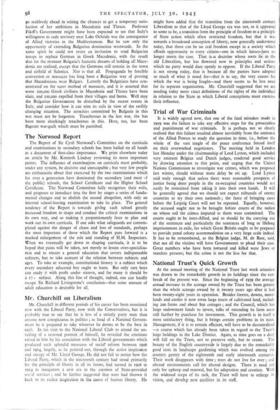Trial of War Criminals
It is widely agreed now, that one of the fatal mistakes made in 1919 was the failure to take any effective steps for the prosecution and punishment of war criminals. It is perhaps not so clearly realised that this failure resulted almost inevitably from the omission of the Allied Powers to study the question in/time, i.e., before the whole of the vast tangle of the peace conference forced itself on their overworked negotiators. The meeting held in London last Monday under the chairmanship of Lord Lytton, which included very eminent Belgian and Dutch judges, rendered good service by drawing attention to this point, and urging that the United Nations Commission to investigate war crimes, which was proposed last winter, should without more delay be set up. Lord Lytton said truly enough that unless there were reasonable prospects of justice being done people in the ex-occupied countries would not easily be restrained from taking it into their own hands. It will be generally agreed that we should not expect tribunals of enemy countries to try their own nationals ; the farce of bringing cases before the Leipzig Court will not be repeated. Equally, however, the accused ought not to be brought before courts of the nation on whose soil the crimes imputed to them were committed. The courts ought to be inter-Allied, and so should be the carrying out of the sentences and particularly the sentences of long or lifelong imprisonment in exile, for which Great Britain ought to be prepared to provide penal colony accommodation on a very large scale indeed. It has to be remembered, as the Belgian judge, M. de Baer, said, that not all the victims will have Governments to plead their case. Great numbers who have been tortured and killed were Jews. or stateless persons; but the crime is not the less' for that.






















 Previous page
Previous page